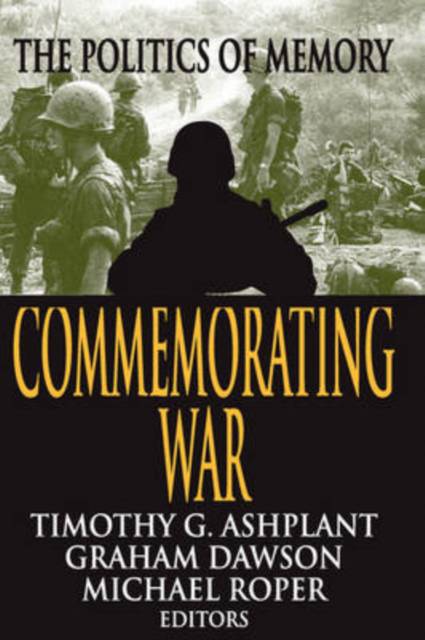
- Retrait gratuit dans votre magasin Club
- 7.000.000 titres dans notre catalogue
- Payer en toute sécurité
- Toujours un magasin près de chez vous
- Retrait gratuit dans votre magasin Club
- 7.000.0000 titres dans notre catalogue
- Payer en toute sécurité
- Toujours un magasin près de chez vous
Description
War memory and commemoration have had increasingly high profiles in public and academic debates in recent years. This volume examines some of the social changes that have led to this development, among them the passing of the two world wars from survivor into cultural memory. Focusing on the politics of war memory and commemoration, the book illuminates the struggle to install particular memories at the center of a cultural world, and offers an extensive argument about how the politics of commemoration practices should be understood.
Commemorating War analyzes a range of forms of remembrance, from public commemorations orchestrated by nation-states to personal testimonies of war survivors; and from cultural memories of war represented in films, plays and novels to investigations of wartime atrocities in courts of human rights. It presents a wide range of international case studies, encompassing lesser-known national histories and wars beyond the well-trodden terrain of Vietnam and the two world wars in Europe.
Emerging from this book is an important critique of both "state-centered" approaches to war memory and those that regard commemoration primarily as a human response to loss and grief. Offering a wealth of empirical research material, this book will be important for cultural and oral historians, sociologists, researchers in international relations and human rights, and anybody with an interest in the cultural construction of memory in contemporary society.
Spécifications
Parties prenantes
- Auteur(s) :
- Editeur:
Contenu
- Nombre de pages :
- 296
- Langue:
- Anglais
- Collection :
Caractéristiques
- EAN:
- 9780765808158
- Date de parution :
- 31-05-04
- Format:
- Livre broché
- Format numérique:
- Trade paperback (VS)
- Dimensions :
- 160 mm x 229 mm
- Poids :
- 390 g

Les avis
Nous publions uniquement les avis qui respectent les conditions requises. Consultez nos conditions pour les avis.






